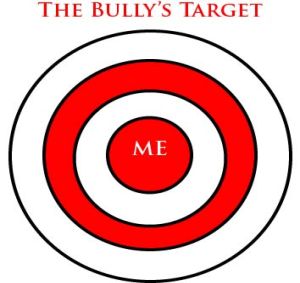Why Is My Child Shunned?
There is no good reason why any child is a victim of bullying or social ostricization. There are some factors that make it more likely that a particular child is singled out.

Do NOT Blame Your Child!
Being bullied or shunned is an emotionally scarring experience. The last thing the child needs is to hear: "If you would only remember to brush your teeth like I tell you, this wouldn't happen."However, there ARE certain factors that contribute to a particular child being the focus of abuse. Some factors may be changed, some may not. However, identifying certain factors that may be contributing to an individual's dilemma may be helpful.
We certainly do NOT want the the child to change in order to please their bullies or gain acceptance from those who are shunning them. That is counter-productive and harmful.
However, one of the strategies for empowering a person who as been bullied or ostracized is to help them develop their own social network of like-minded peers. By evaluating potential factors that may have caused a child to be singled out by bullies, those factors can be addressed.
Perceived Weaknesses
Bullies are known to be cowards. They prey on those they perceive to be weak, and back off from those who have the ability to stand up to them.Your child may or may not be able to identify things in their own life that caused them to be perceived as weak or made them susceptible to bullying. Going through this inventory on this page with them is NOT likely to be helpful. But look at it and see if you can determine if any of these may be causing bullies to see your child as an easy target.
Physical Characteristics
Unique physical characteristics have often been the cause of one child being singled out.These characteristics can be minor or major. They have included:
- Superficial characteristics like acne, freckles, curly hair, missing or crooked teeth
- Overweight - long been a cause of teasing, it is now affecting a record number of children as our diet is more saturated with fats and carbs
- Temporary aspects like crutches or braces
- Physical infirmities which can be as minor as needing glasses or as major as a life-long need of a wheel-chair
Sensitive Kids
How sensitive is "too" sensitive? Some people may say you or your child are too sensitive. This can become a cycle.Kids whose feelings are easily hurt may become victimized more easily. Bullying is about power, and by getting hurt easily an open door is offered to the bully.
Whining is a characteristic of some kids that may contribute to rejection and/or bullying. Some people who speak in a nasal voice actually sound like they are whining when they are not. On the other hand, sometimes people - adults and kids - whine that they are being treated unfairly or singled out when they are not.
What's worse, is teachers and others may dismiss your child's situation with the statement that they are being too sensitive, when in fact they are being bullied, which was precipitated by them being sensitive.
Whether your child is sensitive or not, you still need to take the other steps to deal with it. But if they have a history of making a mountain out of a mole-hill, or sulking when they don't get what they want, these issues need to be simultaneously dealt with.
Hygiene
Some kinds of hygiene problems that may contribute to a child not being accepted by others. This is not a list to shame you as a parent: in fact many a parent would roll their eyes as they themselves wished their children would be a little neater. See if any of these may be something your child can improve.Dental Hygiene
Bad breath, rotting teeth, particles of food in the mouth: these aren't very pleasant ways to show your smile.Clothes, Hair, Nails
Clean and unwrinkled clothes, neat hair, and clean manicured nails contribute to a better presentation.Showering and Underarm Deodorant
Remember, we don't smell ourselves as clearly as others smell us.Money
Unfortunately, money buys power. It starts it grade school and never stops. If your family has less financial means than others this can contribute to your child's ostricization. What's worse, there's not always a lot you can immediately do to change the CAUSE. (But that doesn't mean we won't deal with the behavior and its effects.)Clothing
Clothing can contribute to victimization in three different ways. These can be interrelated in some cases.Clothing Hygiene
If clothes are not clean and neat, this is part of the hygiene above. In addition your child may not keep shoes tied or pants zipped up. I have a son who wouldn't keep his pants pulled up properly (we tried, yes we tried.) These may be contributing factors that he or she can start to change.Clothing Style
Styles change and some kids are on top of it all. Your child may not be. This can be because you or the child do not care about or have money for stylish clothes. Hand me downs are great, but how long have they been handed down?If you feel this may be influential in your child's treatment, there are some things you can do.
Check out adds for new clothes to see what they current style is. Ask your child what they like on the ads or catalog. Look for those type of clothes at used clothing stores. Become a conneisuer of garage sales and those community events where families sell their kids' clothes. The time spent on getting up-to-date styles may be a social boost for your child.
Clothing Cost
One mother told me that her daughter reported that girls at school would turn tags inside out to see what brand they were wearing. Then they would taunt the wearer if it wasn't a name brand. It's not enough to have clothes in style, some kids demand others wear expensive clothes. (I may add that this was a school in a poorer district, no less.)One high school student told his mother that he would rather have fewer clothes that were expensive brands than more clothes of non-name brands. In that family, it was a compromise they were able to reach, as the amount of money they spent did not change.
Much of the time this is also a financial matter because wealthier families can afford wealthier clothes. It may be the same issue as 2 above (money) or in the case of the city school mentioned, it was not a case of money but taste enforced on others.
Another mother from a private school that wore uniforms said the same problem occured at her kids schools. Children could tell by the socks, shoes, pursues, even brand of hair bands who had money and who did not.
This can be the same factor as #2 Money, and your family should not go into debt buying clothes to accomodate bullies. But it is a factor and one should be aware of it as you are assessing causes and contributing causes to your child's treatment.
School Performance
This can go either way. In some cases, a student with lower grades is shunned because of academic performance. In other cases, they may be shunned as an over-achiever or teacher's pet.If you are in the second situation, do not encourage bullies to limit your child's intellectual growth. You may ask them what other kids talk about and see if they have any interest in learning about such things. But don't let your math-genius be lowered to a computer-game-whiz to be accepted by the bullies who are going to be the social loosers at the end.
Looks
Sometimes girls - in particular - can be put through total misery because they are pretty and more popular girls are threatened that another's good looks may usurp their popularity. An unwanted compliment indeed. This is most common in - you guessed it - middle school. But alas it doesn't end there. I've even heard of of nursing home residents who are jealous of good looking new residents!In other cases, it may be the opposite. Plain looking or homely kids may be taunted for that reason. A new hair style or new glasses may help. But keep in mind the cardinal rule: this is not to gain acceptance by their current bullies, but help them gain confidence for new situations.
Athletics and Stamina
No way around it: the athletic kids are usually more popular. And physically awkward kids are rejected far more often than the athletic ones.So, should a non-athletic kid join the football team to stop bullying?
No!
If they want to play sports, great. Let them. But be aware that doing poorly on team sports will probably only increase the ostracization.
On the other hand, taking time to increase physical agility through individual physical activities can be helpful. Individual athletics are one of the 3 ways to boost self-confidence.
Personality
Certain personalities seem to get teased more often. These may include:- Shy, quiet personalities (deemed weaker by others)
- Clowning, silly behavior may be seen as friendly by some kids, annoying by others
- Always nice kids, (perceived as too nice too fight back hence easy victims)
- Unique interests (scholarly, religious beliefs, hobbies)
Helping Your Child
Main Page: DEALING WITH BULLYING- What is bullying? Compare rejection, ostracization, and bullying.
- Teach your child how to deal with a bully.
- Teach your child how to deal with ostracization and emotional bullies.
- When and how to report bullying to authorities.
- Should you homeschool if your child has been bullied.
- Healing After Bullying: Helping Your Child Rebuild Confidence
About Our Site
Hands-On Learning













New! Comments
Share your feedback with the rest of the home school community.